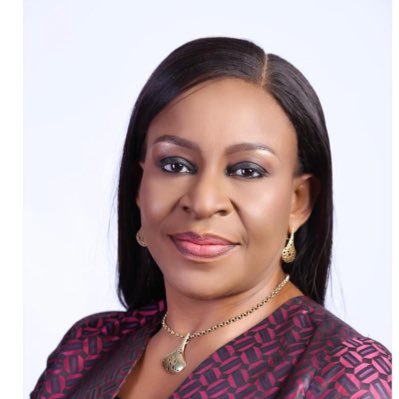Listeners:
Top listeners:
-
play_arrow
104.9FM Best rock music demo
-
play_arrow
Demo Radio Nr.1 For New Music And All The Hits!
-
play_arrow
Demo Radio Techno Top Music Radio
-
 play_arrow
play_arrow
Police Commissioner Launches Weapon and Riot Control Training for FCT Officers Democracy Radio
By Oluwakemi Kindness

The Nigerian Export Promotion Council (NEPC) and the National Bureau of Statistics (NBS) have formalized a partnership through the signing of a Memorandum of Understanding (MoU) to improve data collection on Informal Cross-Border Trade (ICBT) in Nigeria.
Speaking at the signing ceremony held at the NBS Headquarters in Abuja, NEPC Executive Director/CEO, Nonye Ayeni, describes the agreement as a significant milestone in Nigeria’s efforts to expand its export trade by including data from the informal sector.
Ayeni emphasizes that current trade statistics predominantly reflect activities in the formal sector, overlooking the substantial volume and impact of informal export trade.
“In 2024 alone, formal records show that Nigeria exported 7.291 million metric tons of non-oil products worth \$5.456 billion. However, this figure excludes informal trade, which plays a critical role in our economy,” she noted.
According to a statement on Wednesday by the Head, Corporate Communications NEPC,Ndubueze Okeke, Ayeni highlightes that informal cross-border trade supports millions of livelihoods, reinforces regional supply chains, and contributes greatly to national and continental economic resilience.
Data gathered by NEPC field offices from key border states—including Kano, Jigawa, Kebbi, Zamfara, Katsina, Sokoto, Lagos, Ogun, and Adamawa—recorded informal export transactions exceeding $31.8 million in some months of 2024.
Additionally, reports from the National Onion Producers, Processors and Marketers Association of Nigeria (NOPPMAN) revealed that over 1.6 million bags of onions were traded informally to neighboring countries like Ghana, Côte d’Ivoire, Benin, Cameroon, Congo, and Niger Republic.
Despite the scale of these informal trade activities, Ayeni lamented that they are not reflected in national export statistics. “This data gap has serious implications for economic planning. It weakens Nigeria’s position in regional and global trade negotiations, denies informal traders the support they deserve, and obscures the contributions of women, youth, and MSMEs to the economy,” she said.
Ayeni explained that the partnership with NBS is a strategic move to address this imbalance by capturing the full scope of Nigeria’s export activities.
In his remarks, the Statistician General of the Federation, Adeyemi Adeniran, describes the initiative as a step toward resolving one of the country’s biggest trade data challenges—accurately capturing informal and service-related trade.
He acknowledge the presence of stakeholders from various sectors, including national and sub-national agencies, regional organizations, international partners, and the private sector, as a testament to the collaborative spirit necessary for tackling this issue.
Adeniran pointes out that the absence of informal trade data hampers evidence-based policymaking, distorts macroeconomic indicators, and restricts Nigeria’s ability to participate effectively in international trade talks. “Traditional data systems have focused too narrowly on formal trade, ignoring the vibrancy and economic significance of informal trade networks,” he said.
He noted that in Sub-Saharan Africa, informal trade accounts for 20 to 40 percent of intra-African trade, with Nigeria representing a large share due to its extensive and porous borders. “These are not just statistical gaps—they represent a lack of understanding about the economic realities of millions of Nigerians,” he stressed.
The collaboration, Adeniran added, offers an opportunity to modernize trade statistics, uncover new trade opportunities, and design policies that support formalization, improve competitiveness, and promote inclusive economic growth. He emphasized that the initiative would strengthen institutional capabilities, align trade regulations, and establish Nigeria as a leader in trade data within the region.
“Better data on informal trade will also guide smarter border policies, enhance food security, support small businesses, and track regional integration more effectively,” he concluded.
Written by: Democracy Radio
Similar posts
Copyright Democracy Radio -2024



